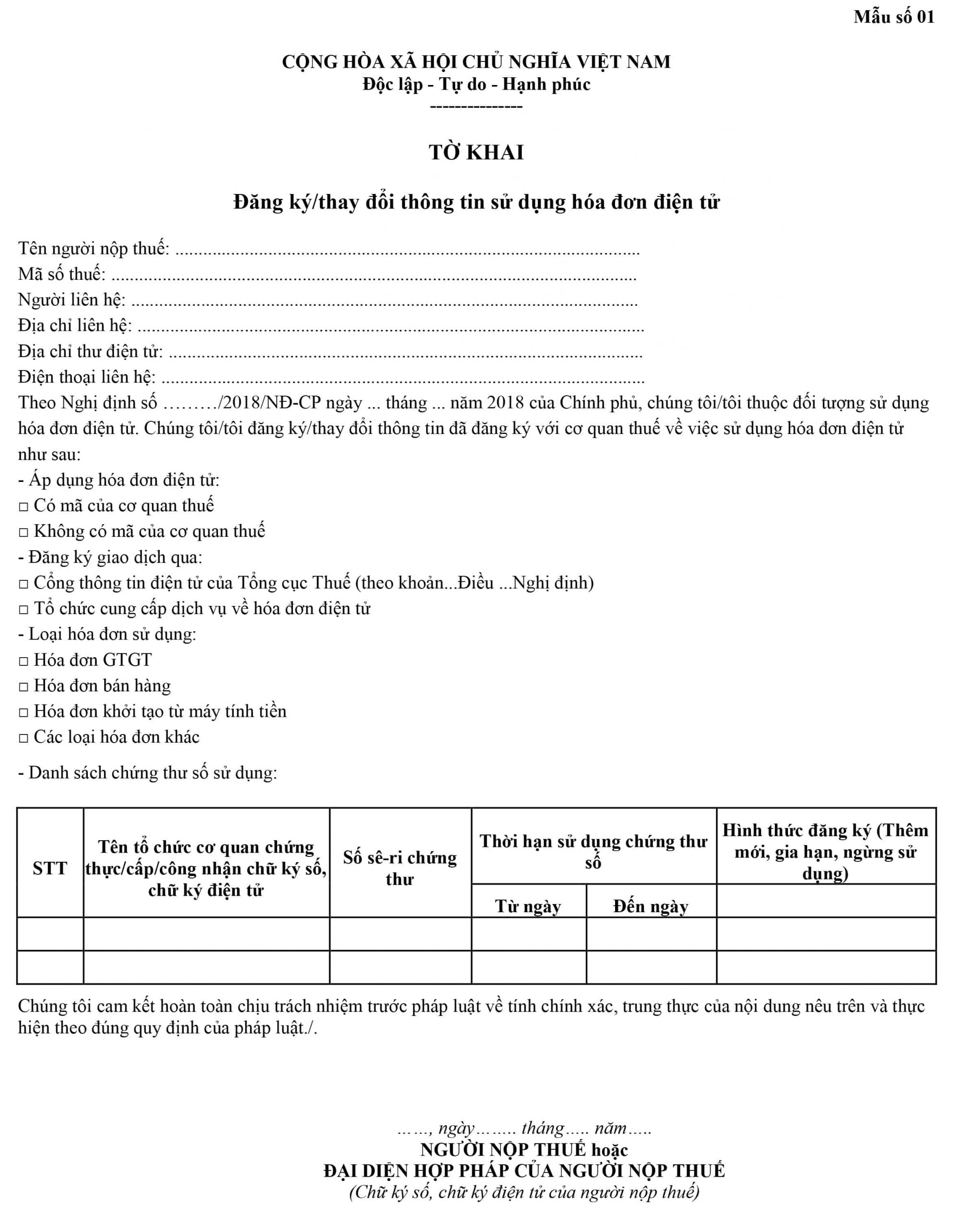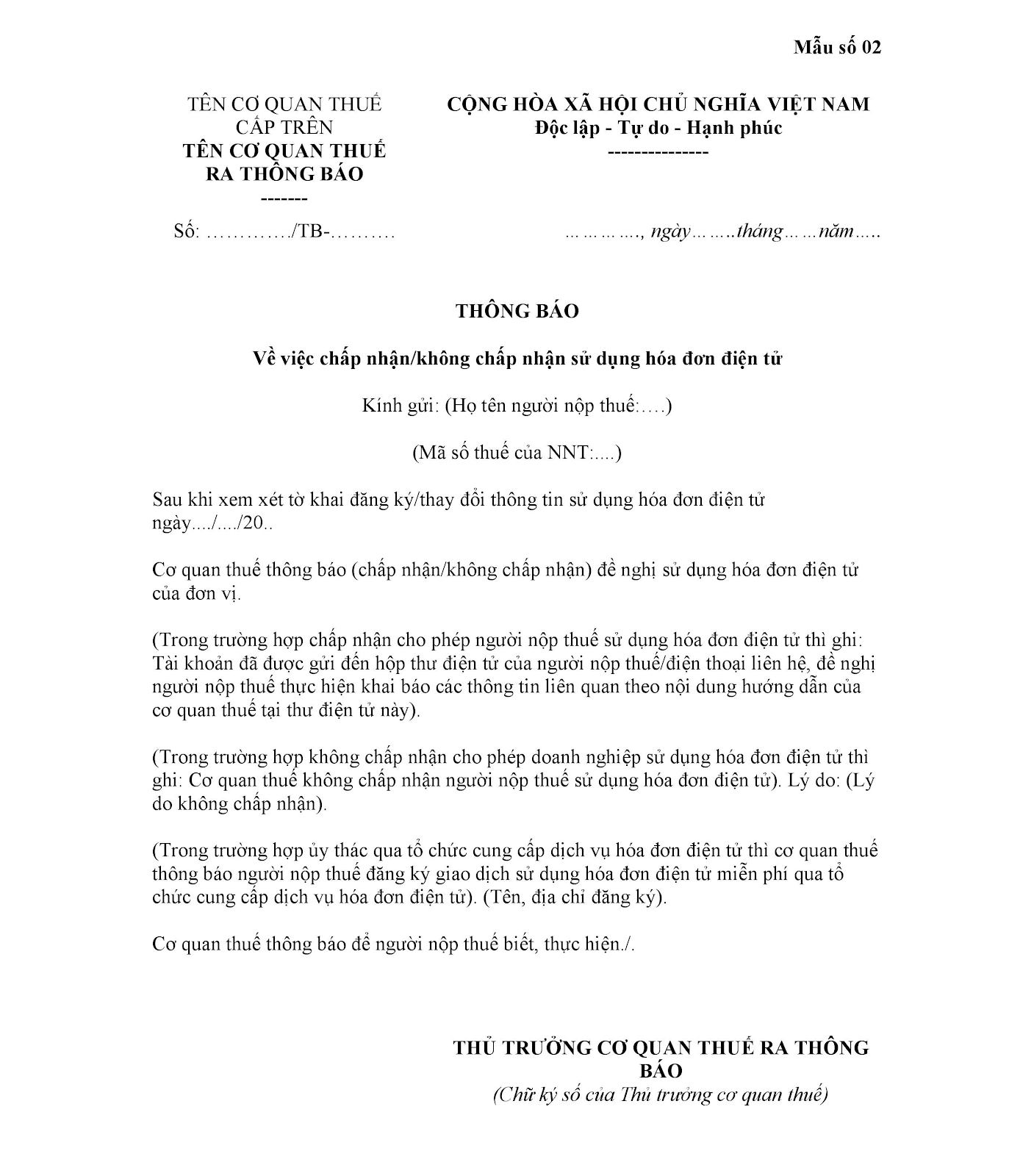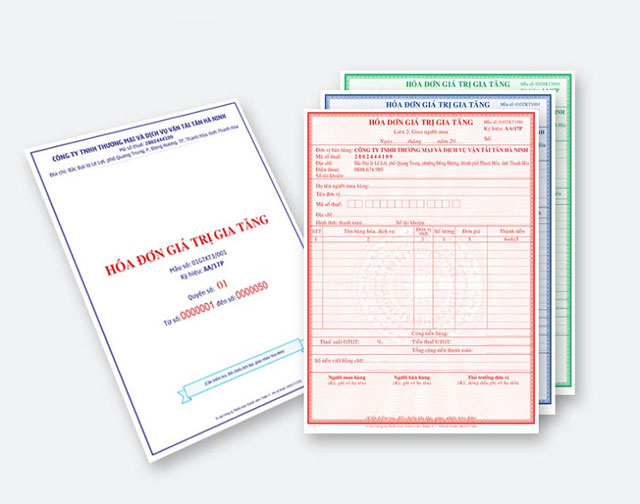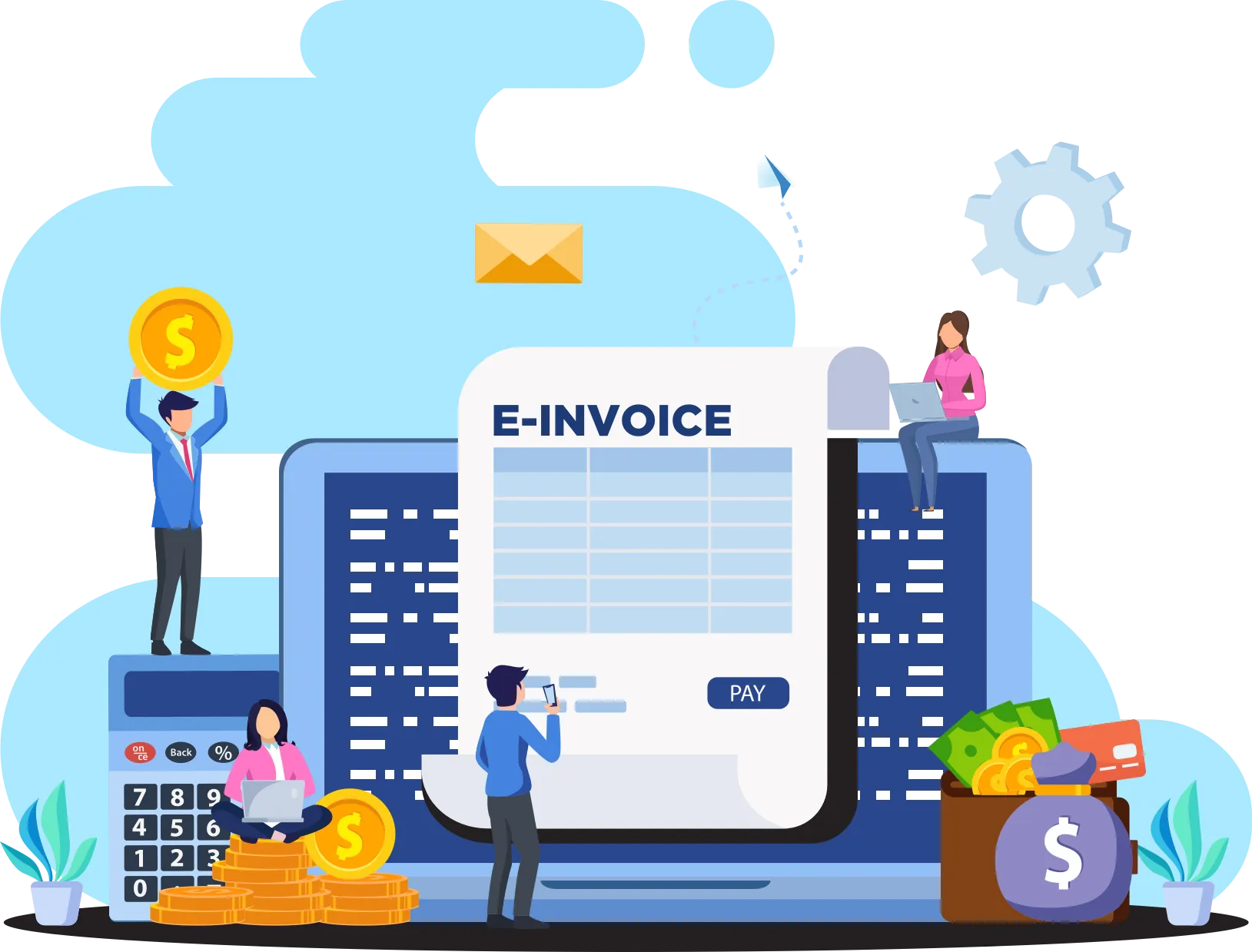In the context of the continuous development of technology, electronic invoices have become an important concept not only for businesses but also for society. Invoices, an integral part of business, are undergoing a transition from traditional paper invoices to modern electronic invoices.
In this article, let's Bizzi Learn about the concept of e-invoices and important information in converting from paper invoices to e-invoices.
Understanding e-invoices
What is an electronic invoice?
Invoice is an accounting document made by an organization or individual selling goods or providing services, and recording information on goods sale or service provision. Pursuant to the provisions of Clause 2, Article 3, Decree 123/2020/ND-CP dated October 19, 2020, e-invoices can be understood as follows:
- Electronic invoice (e-invoice) is an invoice presented in the form of electronic data made by an organization or individual that sells goods or provides services by electronic means to record information on goods sale and provision of services. services in accordance with the law on accounting and tax law, including the case where the invoice is generated from the cash register with an electronic data transfer connection with the tax authority.
Original electronic invoices are usually represented in XML format, a popular format for exchanging data between information systems. However, due to the cryptographic nature of XML, it is not always possible to read the content directly by the human eye. XML is used to encrypt information and share data electronically between different systems.
For the convenience of checking and looking up, usually accountants often convert electronic invoices into other formats such as PDF, HTML or print them on paper. PDFs, HTML files, or paper versions are all capable of displaying information visually to the reader. They are presented as a clear representation of the electronic invoice, making it easy for the viewer to capture the information without having to deal with the XML directly.
Classification of electronic invoices
Electronic invoices include:
- Export bill; VAT invoice; bill of sale; Other invoices include: stamps, tickets, cards, insurance receipts...
- Air freight receipts, receipts for international freight charges, receipts for banking service charges...
Pursuant to Article 5 of Decree 119/2018/ND-CP stipulating e-invoices when selling goods and providing services, specific types of e-invoices are specified as follows:
Article 5. Types of electronic invoices
Electronic invoices include the following types:
- Value-added invoice is an invoice applicable to goods sellers and service providers who declare value-added tax by the deduction method. Value-added invoices in this case include invoices generated from cash registers that have an electronic data transfer connection with tax authorities.
- Sales invoice is an invoice applicable to sellers of goods and provision of services who declare value-added tax by the direct method. Sales invoices in this case include invoices generated from cash registers that have an electronic data transfer connection with tax authorities.
- Other types of invoices, including: Electronic stamps, electronic tickets, electronic cards, electronic receipts, electronic delivery-cum-shipping notes or other electronic documents with other names but with the contents specified in Clause 1 of this Article. Article 6 of this Decree.
- E-invoices specified in Clauses 1, 2 and 3 of this Article must follow the standard data format prescribed by the Ministry of Finance.
E-invoices may or may not have the tax authority's code, in which:
- An e-invoice with a tax authority's code is an e-invoice that is issued a code by the tax authority before an organization or individual selling goods or providing services sends it to the buyer.
- An e-invoice without a tax authority's code is an e-invoice sent by an organization selling goods or providing services to a buyer without a tax authority's code.
Why businesses need to convert from paper invoices to electronic invoices
Pursuant to the provisions of Article 91 of the Law on Tax Administration 2019, the provisions of Decree 123/2020/ND-CP and Circular 78/2021/TT-BTC, enterprises are required to use e-invoices when purchasing – selling goods and services from July 1, 2022.
Accordingly, in Official Dispatch 10847/BTC-TCT 2021 on coordination in deploying e-invoices according to the provisions of Law on Tax Administration 38/2019/QH14 and Decree 123/2020/ND-CP issued by the Ministry of Finance. There are regulations on the use of e-invoices that in order to effectively implement e-invoices according to the new regulations in the above documents, the Ministry of Finance has planned the implementation in two phases: 1 from November 2021 and phase 2 from April 2022.
Benefits of e-invoices for businesses
Switching from paper invoices to electronic invoices brings many important improvements for businesses. Previously, using paper invoices, businesses faced many difficulties in managing, preserving and printing costs. However, when switching to electronic invoices, businesses can take advantage of the following advantages:
- 90% Cost Savings: The complete elimination of printing, shipping, storing and preserving invoices helps businesses save up to 90% in associated costs. Without having to mess around with paper and ink, businesses can use resources and funds more efficiently.
- Optimizing working time: Manual processing of paper invoices is often time-consuming for accountants. When converting to electronic invoices, the working time of accountants is significantly shortened. Work from invoice creation to processing becomes faster and more efficient.
- Increased reliability: With paper invoices, it is possible for invoices to be lost or damaged in transit. Using e-invoices eliminates this situation, increasing the reliability and reputation of the business's invoices.
- Convenient administration: E-invoices allow businesses to look up and manage invoice usage anytime, anywhere. Invoice information is readily available and easily accessible, making administration convenient and efficient.
- Automatic reports: Electronic invoices automatically generate invoice usage reports quickly and accurately. This helps businesses capture important information to make timely decisions.
- Integration into management systems: Electronic invoices can be integrated directly into the accounting and ERP management systems of enterprises. This creates alignment and automation between financial and transaction-related processes.
- Protect the environment: Switching to e-invoicing reduces the negative impact on the environment by eliminating the use of paper, ink and shipping documents.
Steps to convert from paper invoices to electronic invoices
To convert from paper invoices to electronic invoices, businesses need to meet the following conditions based on Article 6, Decision 1209/QD-BTC dated June 23, 2015.
- Having information technology infrastructure to store and use electronic documents. This is a very simple condition to implement because almost every business office has information technology infrastructure such as computers, internet, etc.
- Enterprises can build e-invoice software by themselves or use e-invoice software provided by an intermediary organization.
Procedures for registration to use e-invoices
The registration process for using e-invoices is carried out in accordance with the provisions of Decree 119/2018/ND-CP. These procedures will be divided into 2 cases, that is, registering to use invoices with CQT code and without CQT code.
For e-invoices with tax authority's code
Entities registered to issue e-invoices with tax authority codes include organizations, businesses, business households and individuals. The procedure for user registration is as follows:
- Step 1: Access the website of the General Department of Taxation.
- Step 2: Fill in all information according to form No. 1 Appendix Decree 119/2018.
- Step 3: Wait for the notification from the tax authority according to the form No. 2 of the Appendix attached to Decree 119. The time limit is usually 1 working day from the time the tax authority receives the registration file.
- Step 4: If the notice from the tax authority is accepted, you need to destroy all unused paper invoices to start using the e-invoice. If you need to adjust the information, please correct it and send it back to the tax office according to form No. 1.
-

Form 01: Registration/change of information using e-invoices (Issued together with Decree 119/2018/ND-CP)
For e-invoices without tax authority code
Objects that can register to use e-invoices without CQT code include businesses dealing in petroleum, electricity, post and telecommunications, clean water, healthcare, insurance, e-commerce,... or businesses Enterprises and economic organizations have or will conduct transactions by electronic means with tax authorities.
The registration procedure is as follows:
- Step 1: Access the website of the General Department of Taxation. Then fill in all information according to form No. 1 Appendix Decree 119.
- Step 2: The tax authority sends a notice according to form No. 2 of Appendix attached to Decree 119 after 1 working day from the date of receipt of the registration application.
- Step 3: After being accepted to register to use e-invoices without CQT code, you need to cancel all outstanding paper invoices. If not accepted, you should register to use e-invoice with CQT code.

Difficulties and challenges when businesses apply electronic invoices
Talking to VnEconomy, an expert in the tax field, said that applying e-invoices to large-scale businesses is easy and convenient, but for small-scale businesses, there are still many problems. challenge. For example, in order to use e-invoices, enterprises must be completely proactive in creating and issuing invoices. "For small and medium-sized businesses, the mentality of being afraid to change before the new will be an obstacle."
When making the switch to using electronic invoices, businesses also face a number of challenges:
Firstly, the transition to e-invoices requires businesses to completely manage the steps of creating and issuing invoices themselves. However, the process offers a simplification of invoice issuance and management. E-invoices are also capable of containing more information and can even present a distinctive image of the business.
Second, in Vietnam, invoices are often considered as paper documents. The transition to e-invoices is still difficult because a large part of people still do not understand the concept and legality of e-invoices. This makes it complicated to explain to customers when new businesses adopt e-invoicing.
Third, the application of electronic invoices requires a good technical infrastructure, and not all businesses are able to meet the requirements in terms of information technology and telecommunications. The lack of provision of e-invoice services nationwide makes it difficult to deploy to smaller locations.
Fourthly, in order to be able to use electronic invoices, enterprises must ensure that the machinery and equipment system is qualified to operate and use this invoice. At the same time, highly qualified human resources are required to implement the effective use of e-invoices.
Fifth, when using e-invoice software, businesses need to link with many different objects such as banks, buyers and sellers. However, implementation for buyers and sellers is still difficult, creating delays in the implementation of e-invoice software.
In summary, in the context that businesses need to optimize costs and improve business efficiency, the conversion to electronic invoices is an effective solution. On the other hand, e-invoices also bring many advantages in management at State agencies, including tax agencies. From that, it can be affirmed that e-invoices play an important role in the management of enterprises and state agencies.
Above is information related to electronic invoices. In the context of an increasingly changing business environment, switching from paper invoices to electronic invoices is not only a step forward in the use of technology, but also a step towards sustainable development.
Follow Bizzi to quickly receive the latest information:
- Facebook: https://www.facebook.com/bizzivietnam
- Linkedin: https://www.linkedin.com/company/bizzi-vietnam
- Youtube: https://www.youtube.com/@bizzivietnam







